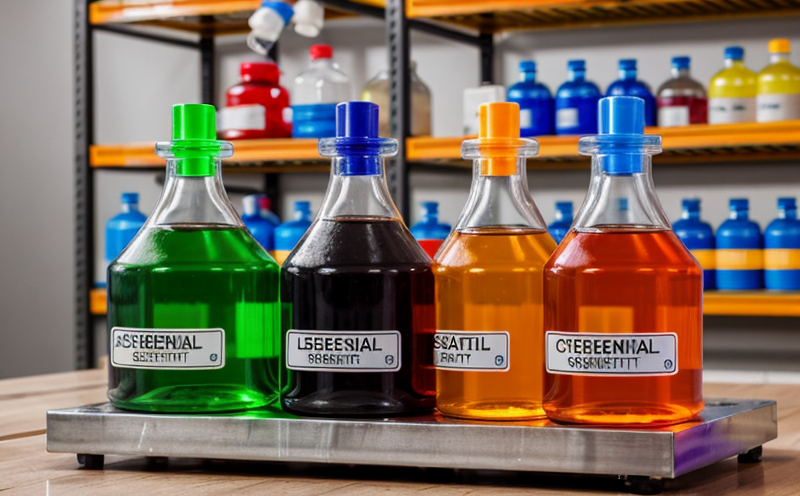DNOP Phthalate Testing in Household Items
DNOP (Di-n-octyl phthalate) is a common plasticizer used in various household items, including toys, flooring, textiles, and personal care products. Due to its widespread use, there are increasing concerns about the potential risks associated with DNOP exposure. This testing service ensures that manufacturers comply with regulatory requirements by identifying the presence of DNOP and other restricted phthalates in consumer goods. Our comprehensive approach includes specimen preparation, instrumental analysis, and detailed reporting tailored to meet international standards such as ISO 8007 for plasticizers in polyvinyl chloride (PVC).
The testing process begins with careful selection of the appropriate sample size based on product type and volume. For instance, smaller items like toys may require less material compared to larger products such as furniture or flooring. After sampling, samples are analyzed using advanced techniques like High-Performance Liquid Chromatography (HPLC) coupled with Mass Spectrometry (MS/MS). This method provides high sensitivity and selectivity for detecting trace amounts of DNOP.
The acceptance criteria for DNOP testing involve comparing the detected levels against established limits set by regulatory bodies. For example, in Europe, Directive 2019/1020/EU restricts certain phthalates including DNOP in specific product categories like toys and childcare articles to a maximum concentration of 0.1% by mass.
- Customer Impact: By conducting rigorous DNOP testing, companies can ensure their products are safe for consumers, thereby protecting brand reputation and avoiding costly recalls or legal issues.
- Sustainability: Ensuring compliance with phthalate restrictions helps manufacturers contribute positively to environmental conservation efforts. It also supports sustainable development goals by reducing the release of harmful chemicals into the environment.
Benefits
The benefits of DNOP phthalate testing extend beyond mere compliance; they encompass enhanced safety, improved reputation, and reduced risk. Regulatory bodies like the European Chemicals Agency (ECHA) have identified several health hazards associated with long-term exposure to certain phthalates, including reproductive toxicity and endocrine disruption.
By implementing our DNOP testing service, companies can gain valuable insights into their products' compliance status, enabling them to make informed decisions regarding ingredient substitution or formulation adjustments. This proactive approach not only mitigates potential legal risks but also fosters trust among consumers who value product safety and transparency.
Achieving regulatory compliance through rigorous testing underscores a company's commitment to responsible manufacturing practices. Such efforts resonate well with environmentally conscious stakeholders, including investors, customers, and employees. Moreover, successful completion of DNOP phthalate tests can serve as a marketing differentiator, positioning brands favorably in competitive markets.
Furthermore, maintaining adherence to evolving regulations demonstrates agility and adaptability, which are crucial assets in today's rapidly changing regulatory landscape. Companies that invest in robust testing infrastructure are better equipped to navigate future challenges and opportunities with confidence.





